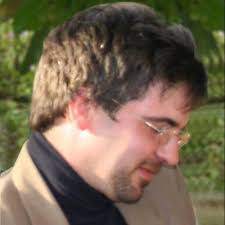While I respect Robert George as one of America’s preeminent Catholic intellectuals, the gentleman nonetheless erred gravely when he envisioned America as a “propositional nation.”
Of course in this error George and countless other Catholics merely follow the (ostensibly) progressive zeitgeist, which has long since condemned mere historic nations. Based as they are upon trivialities — i.e., shared experiences, heritage, language, blood, culture, and religion — historic nations are now seen as relics of a petty-minded past.
Just one of the several points from James Kalb’s brief and precise critique of the American Proposition:
“If particular concrete human connections are irrelevant to whether you’re American or not, and being American means accepting the view of government presented in the second sentence of the Declaration of Independence, and that view is universal in its validity, then does America by rights include the whole world?”
In fact, what the theory of the “propositional nation” has produced is an entirely new type of elite for whom home is no longer a category of the consciousness. Do we really have any business being all that surprised, then, when the vast majority of these elites prove irreverent and impious?




9 comments
Sempronius
I believe that you gentlemen, blogger and commenters alike, are taking the stated tenets of the PN more seriously than they were (or are) meant or intended.
Robert M. Peters
I would suggest that we look to Mr. Lincoln for the codification of the notion that “the” United States “is” a propositional or creedal nation. Of course, he had his political antecedents in his friend Clay, in Webster, in Story, in Marshall and in Hamilton; but they were pedestrian “Federalists” and “Whigs.” Lincoln brings the Jacobin element into the fiction.
C R Wiley
Seems like Rod Dreher’s recent blog post is apropos here. His sister wasn’t a proposition — she was and is a person.
Dan Phillips
“West Coast Straussians, many Neoconservatives, and others who desire to impose social conservative aims via the power of the central government.”
PDH, if only social conservatism was the goal of West Coast Straussians and neocons. Social conservatism is just window dressing for their real foreign policy agenda of making America responsible for safeguarding the world and advancing democracy. The proposition nation nonsense is part of that agenda. It is easier to sell their foreign policy agenda if the people can be made to believe that America is a universal proposition nation rather than a particular blood and soil nation.
CK
Peter Daniel Hawthorn writes : “He is a philosopher who seems to merely be accepting a mythical view of the Declaration that is being advanced by West Coast Straussians”
Actually, I think it would be more accurate to say that Prof. George is taking a view of the Declaration and the American founding that was originally advanced by Rev. John Courtney Murray rather than one advanced more recently by neoconservatives. While the followers of Murray (Novak, Neuhaus, George) may at times be allied with neoconservatives, particularly in issues of foreign adventurism, they do diverge on social issues.
For more on Murray’s thesis, see ‘We Hold These Truths’, and for an excellent critique, see the work of Michael Baxter:
http://patrickdeneen.blogspot.com/2009/11/god-notre-dame-country.html
love the girls
Peter Daniel Hawthorn writes : “He is a philosopher who seems to merely be accepting a mythical view of the Declaration that is being advanced by West Coast Straussians”
This strikes me as strange. Those I know of who have gone to Claremont political grad school were Thomists with an Aristotelian understanding of the polis. Not that I’m defending the US as polis since its unnatural in scale, but the concept of state as propositional at any scale is unnatural and would be contrary to an Aristotelian understanding.
T. Chan
Those “conservative” Catholics need an education…
Peter Daniel Haworth
Unfortunately, I doubt that Dr. George takes the contextual history of the Declaration and its role in the American political tradition very seriously. He is a philosopher who seems to merely be accepting a mythical view of the Declaration that is being advanced by West Coast Straussians, many Neoconservatives, and others who desire to impose social conservative aims via the power of the central government.
Comments are closed.